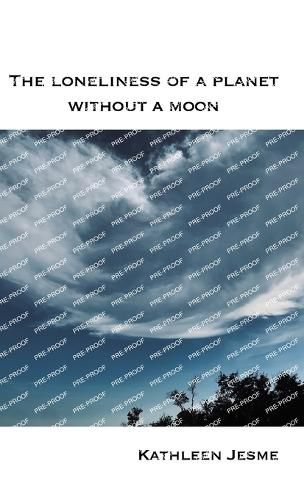Readings Newsletter
Become a Readings Member to make your shopping experience even easier.
Sign in or sign up for free!
You’re not far away from qualifying for FREE standard shipping within Australia
You’ve qualified for FREE standard shipping within Australia
The cart is loading…






This title is printed to order. This book may have been self-published. If so, we cannot guarantee the quality of the content. In the main most books will have gone through the editing process however some may not. We therefore suggest that you be aware of this before ordering this book. If in doubt check either the author or publisher’s details as we are unable to accept any returns unless they are faulty. Please contact us if you have any questions.
What kind of lonely planet this, the forested world of Kathleen Jesme's home, the wilderness of, dare we say, her soul meeting all the natural things? She knows all their names, whispered into her open wide and waiting poet's ear. Birds, varieties of trees, wee creatures in the long grass, flowers-many flowers growing wild and awaiting her notice. In every season the changing reflection of the moon. Jesme's poems are icons on the page, word forms seen as much as heard. Much like Japanese art in which the spaces as much as the lines of script define the meaning, Jesme's poetry is made of word images like cliffs at the edge of space. The reader is invited to fall from the known world of the words through spaces of the unknown into an inner awareness, the moon itself, reflecting the inarticulate paradox in all things.
-Christin Lore Weber, author of No This But This
These poems of deep interiority, often grounded in the poet's devotion to the natural world, not only teach us how a poem can think but also how juxtaposition and accretion of detail can coalesce into a complex reality of its own. In The loneliness of a planet without a moon, associative and mirrored themes appear and disappear to reveal a kaleidoscope of motifs that are altered by sudden shifts in perspective as ordinary and cosmic merge and separate, as time slips away then takes away, and as the optics of impermanence and mortality come sharply into view. This book of days creates through-lines of lyric presence and philosophical interlude that play off one another like bits of glass that form and re-form into a succession of pattern and reflection on the myriad transitions of expansion and contraction that make up a life.
-Francine Sterle, author of What Thread?
$9.00 standard shipping within Australia
FREE standard shipping within Australia for orders over $100.00
Express & International shipping calculated at checkout
This title is printed to order. This book may have been self-published. If so, we cannot guarantee the quality of the content. In the main most books will have gone through the editing process however some may not. We therefore suggest that you be aware of this before ordering this book. If in doubt check either the author or publisher’s details as we are unable to accept any returns unless they are faulty. Please contact us if you have any questions.
What kind of lonely planet this, the forested world of Kathleen Jesme's home, the wilderness of, dare we say, her soul meeting all the natural things? She knows all their names, whispered into her open wide and waiting poet's ear. Birds, varieties of trees, wee creatures in the long grass, flowers-many flowers growing wild and awaiting her notice. In every season the changing reflection of the moon. Jesme's poems are icons on the page, word forms seen as much as heard. Much like Japanese art in which the spaces as much as the lines of script define the meaning, Jesme's poetry is made of word images like cliffs at the edge of space. The reader is invited to fall from the known world of the words through spaces of the unknown into an inner awareness, the moon itself, reflecting the inarticulate paradox in all things.
-Christin Lore Weber, author of No This But This
These poems of deep interiority, often grounded in the poet's devotion to the natural world, not only teach us how a poem can think but also how juxtaposition and accretion of detail can coalesce into a complex reality of its own. In The loneliness of a planet without a moon, associative and mirrored themes appear and disappear to reveal a kaleidoscope of motifs that are altered by sudden shifts in perspective as ordinary and cosmic merge and separate, as time slips away then takes away, and as the optics of impermanence and mortality come sharply into view. This book of days creates through-lines of lyric presence and philosophical interlude that play off one another like bits of glass that form and re-form into a succession of pattern and reflection on the myriad transitions of expansion and contraction that make up a life.
-Francine Sterle, author of What Thread?